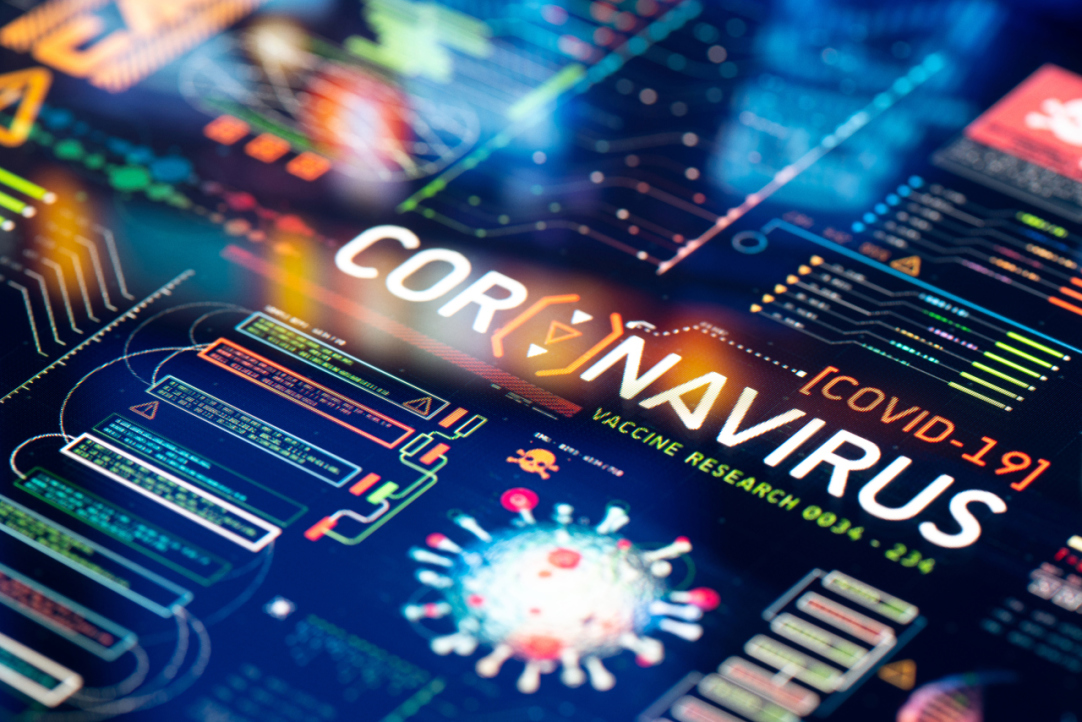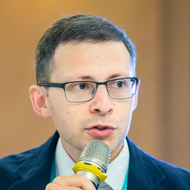Countries Strengthen Scientific Cooperation in Response to Coronavirus Pandemic

The OECD Committee for Scientific and Technological Policy (STP) held its first meeting of the year in early April. HSE staff members Mikhail Gershman, Dirk Meissner and Elena Sabelnikova joined Ministry of Education and Science representatives as members of the Russian delegation to the event. Here, they explain which approaches participants discussed for combating the coronavirus and for preventing other global crises.
Sharing experience on fighting the pandemic
The OECD Committee for STP held its recent three-day conference online. All of the discussions were connected in some way with COVID-19. In the lead-up to the meeting, 32 countries filled out the OECD Survey on the Science and Innovation Policy Responses to Coronavirus (COVID-19) in record time. This provided a picture of how the new coronavirus was spreading and made it possible to analyze the decisions taken by different countries to combat the pandemic. HSE experts provided the information on Russia and participants discussed various countries’ case studies at a preliminary session during the Committee’s first day of work.
Many countries had quickly created special, senior-level bodies for coordinating their efforts against the spread of coronavirus. Countries’ health ministries, whose responsibilities include the research and development of a COVID-19 vaccine, play a central role in most such structures. Those countries that already had a practice of incorporating the recommendations of scientific advisors in state policy were the most likely to involve leading scientists in coping with the spread of COVID-19.
Many countries are working to prevent panic over the coronavirus infection by battling the spread of ‘fake’ information. They create and regularly update official websites and publications and hold discussions in the media with prominent virologists.
Participants noted the success of innovative policies in Australia where the authorities had managed to reduce regulatory barriers and in Israel, where leaders held open competitions for the best innovative solutions.
The OECD Committee for Scientific and Technological Policy (CSTP) promotes cooperation between OECD member and partner countries in the field of science, technology, and innovation policy (STI) and makes recommendations in this area. In addition to OECD member country representatives, leading partner countries’ experts in the field, including those from Russia, participate in its work. Russia’s Ministry of Education and Science has officially delegated HSE experts to participate in the work of the Committee and its working groups, to present Russia’s position in the field of STI to the OECD, and to ensure that Russian data is represented in databases and major publications of the OECD. The CSTP gathers semiannually and its conference in early April 2020 marked its 116th meeting overall.
One delegate proposed the creation of coordinating bodies at the country level that would consist of leading experts from various fields ranging from medicine to economics and that would present a full picture of the situation for both the population and the authorities, help explain the situation, and facilitate political decisions for countering the crisis.
Cooperating and Collaborating against the Virus
Many delegates stressed the need to support new international scientific collaboration to combat coronavirus infection. Although countries cooperate primarily with the World Health Organization, significant potential exists for multilateral scientific and technical cooperation as well. The Committee suggested that participants look at ways to increase international scientific cooperation. Developing countries and those with less scientific capacity pose the greatest challenge.
One issue concerns countries’ policies for providing open access to research data for use in crises. Although countries previously took a somewhat passive approach to this question, urgent efforts are now underway to mobilize medical research data and to intensify scientific collaboration for analyzing that data, including with the use of artificial intelligence, as the National Institutes of Health and Microsoft are doing in the United States.
The business community and pharmaceutical industry are strengthening cooperation on creating vaccines and testing kits, and universities and hospitals are working together to quickly gather new data on the course and nature of illnesses caused by COVID-19. The delegates noted that several positive results had already been achieved thanks to the timely exchange of data and the granting of open access to publications about the virus.
Funding, Priorities and Plans for the Future
The crisis has brought to the fore the question of support for fundamental (high-risk) research that experts agree is currently underfunded.
Committee members proposed the allocation of targeted grants for research aimed at fighting the coronavirus. They also suggested that support be provided for related areas of research and development such as AI solutions, timely diagnostics, vaccinations and treatments, initiatives for data exchange and machine learning, and many others.
Participants noted the positive experience of South Korea, that employs mobile apps to track the dynamics of how the virus spreads throughout the country, and of Italy, that uses AI to computerize the development of medicines.
The emerging experience of dealing with the new coronavirus has prompted a rethinking of the priorities for the further work of the Committee and the practice of high-level scientific advice. It has also led to the recognition of opportunities to find timely responses to other global crises. In addition to the preliminary and main sessions, the Committee held two panel discussions on scientific advice and responsible communication during large-scale emergencies.
The meeting concluded with the Committee members approving the CSTP Work Programme and Budget for 2021–2022 and agreeing to review the Recommendations on International Cooperation in the Scientific and Technical Field and update the Recommendations of the Council on Access to Research Data Obtained through Public Funding. Also, a number of platforms will be launched for the collection and analysis of data on science, technology, and innovation policy measures such as STI Outlook, STIP Compass 2020 and STI Scoreboarddata.
During the meeting, Russian delegation members commented on several issues related to open access to research data and the functioning of the STIP Compass platform and confirmed their readiness to continue participating in the Committee’s projects.
Mikhail Gershman, Deputy Director of the HSE Institute for Statistical Studies and Economics of Knowledge

‘The meeting’s agenda focused entirely on the subject of COVID-19, which is unsurprising given the crisis unfolding in the world. I think that under the changed situation, many of the Committee’s projects—that countries might not have considered priorities before—will gain new impetus for development. This concerns primarily projects on international cooperation in the field of science, technology, and innovation, and the use of open research data. Russia must take an active part in these projects, both to receive the most up-to-date information about initiatives that different countries are planning and to promote the Russian agenda and share its own experience in dealing with the current crisis.’

